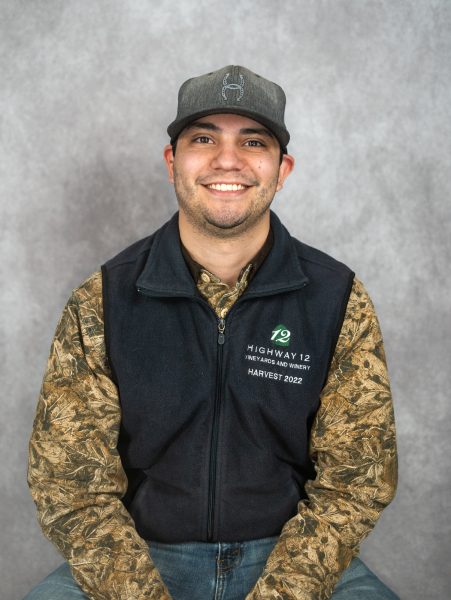In the aftermath of the news Thursday afternoon that Santa Rosa Junior College will be online only through fall 2020, faculty and staff appeared just as blindsided as students by the decision, though their reactions were mixed.
“Honestly, I’m kind of in shock,” said Dr. John A Stover III, sociology instructor at SRJC’s Petaluma campus. “On the one hand, I’m relieved that faculty, students and staff can plan ahead now that we know we’ll be in this remote/online world for the rest of 2020. But I’m also grieving the loss of our physical connections and in-person communities. It’s so incredibly hard to do this, but it’s also, in my opinion and based on the science of what I’ve been reading, the right thing to do given the circumstances.
Stover “absolutely” agreed with SRJC President Dr. Frank Chong’s decision to hold online only classes throughout Fall 2020. After a meeting held with his vice presidents, Chong also announced that the summer semester would be held online.
California Governor Gavin Newsom issued a ban on mass gatherings through summer, causing SRJC’s Summer Repertory Theatre and other on-campus programs to be canceled outright.
Forensics team adviser Laura Ainsworth said the debate team is currently in protest discussions over the decisions. “They are discussing the idea of advocating for a socially distanced in-person graduation, anyway, because it doesn’t violate the local and state orders,” she said. “Students are so upset.”
Ainsworth and art instructor Mark Wilson both agreed that the “one size fits all” online solution could be the wrong one. They believe students should have had a say in what the college does for fall.
“We’re jumping the gun and assuming things will be still dire in the fall,” he said. He mentioned following in the footsteps of what UC Berkeley may do for its fall classes, having all students wear masks and have hand sanitizer readily available.
Cassandra Shafer, an adjunct communication studies instructor, said she thought the decision was fear-based and goes against the college’s mission statement.
“I am saddened and disturbed at the lack of critical thinking that is occurring in our institution of higher learning,” she said. “Only two deaths have occurred in Sonoma County due to the coronavirus. Only two. Period. Pulmonary doctors in NYC don’t wear face masks around COVID patients unless they expect to perform a procedure that will cause fluid expulsion.”
Shafer said her students are “plowing ahead,” yet they are depressed and anxious. “They do not like remote learning. ‘If I had wanted to take an online course, I would have signed up for one. I have already failed or dropped online courses.’” she said, paraphrasing her students’ comments. “They lie in bed, in the dark, under the covers during my classes on Zoom.”
History instructor Anne Donegan agreed with the college’s decision even though it makes her unhappy.
“I miss Emeritus, I miss teaching, and I truly believe that in-person teaching is the best way to teach,” she said. “But we are in a pandemic and our numbers are low in Sonoma County, because we have been doing such a good job sheltering in place. We must continue.”
Mathematics faculty member Tom Falbo also agreed with going remote through 2020 and said it is not safe for him to return to campus because his 6-year-old grandson has severe asthma. “I am terrified for his life, and I wouldn’t return to campus now even if it meant I had to quit.”
He added that social distancing is the one powerful way to slow the spread.
“The virus will continue to spread because we don’t live in a bubble. Even those of us lucky enough to have little contact with potential carriers cannot totally avoid the risk, but there is one way we can as a community lessen the risk, and that is to not act in ways that increase the risk.”
Like Falbo, history instructor Salvador Diaz prioritizes safety. “We should do what is best for the health and safety of our students,” he said. “Ultimately it is not about what makes us comfortable or whether you agree with the ‘shelter in place’ restrictions. It is all about serving students the best way possible without putting them in any unnecessary risk. In my classes, many students don’t feel truly safe coming back without a vaccine, and that says it all.”
Dr. Alexa Forrester, co-chair of the Department Chair Council and chair of the philosophy, humanities and religion department, took the middle ground approach to Chong’s announcement. While the decision relieves some anxiety among faculty over safety concerns, it also creates new challenges and disproportionately affects those disciplines that are more hands-on.
“My hope is that we can avoid the urge to take sides or to assume that there is an obvious solution to this quandary,” she said. “Instead, I hope we will validate the deeply held commitments that are motivating our disagreements and work together to craft a fall schedule that will fulfill our educational mission as best it can, even as we acknowledge that a remote semester will be, for most of our community, a greatly diminished one. Finally, I hope we will all work to support the programs, colleagues and students most impacted by the college’s decision to teach remotely.”



